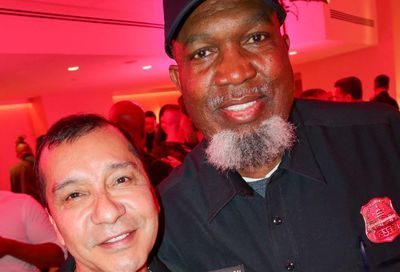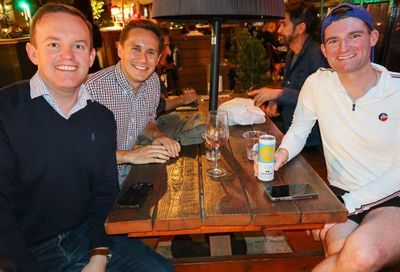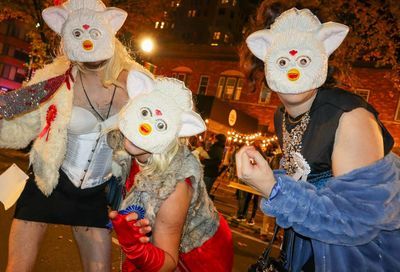Show, Don't Tell
LGBT youth in foster care need to see examples of happy, healthy lives
Tyrese loves roller coasters. He goes to Adventure Park USA from open to close, every weekend. And he does it all alone. Tyrese is gay, black and in foster care. In the midst of dealing with his complicated identity, his sanctuary is an amusement park where no one knows him.
I found adolescence challenging; it looked harder for my younger brother, Scotty. He came out in high school and I watched as he wrestled with his sexuality and his identity. But Tyrese’s life sounds unfathomably difficult.
I’m 26, I’m a Christian, I support gay rights, I’m a medical student, I wear Gap everyday, and I love chivalry and tradition. I also love seeing kids do well. It’s what I’ve always been passionate about. And I’m asking for your help because research shows that these kids need you.
In Washington, there are more than 2,000 kids in foster care. Estimates that 5 to 10 percent of those kids are LGBT are probably low because LGBT kids are overrepresented in the foster-care system. Families are more likely to give up an LGBT child than a heterosexual one. Many of these kids are abused or neglected at home because of their sexual identity. One quarter of them are in foster care because of conflicts with their parents about their sexual or gender identity.
Once in foster care, many continue to experience neglect, discrimination and abuse by their peers and foster care staff. Abuse by peers is often condoned or ignored by staff. This is in addition to the problems most LGBT teenagers face at school. Of LGBT youth in foster care, 78 percent run away or are removed from their placements as a result of hostility toward their sexual/gender identity.
At the end of the day, kids like Tyrese have been told by everyone that they aren’t normal, that they’re not good enough, and that they deserve harassment and abuse. I can tell Tyrese over and over that my brother is compassionate, successful as a musician, funny, an all-around good guy –but just meeting Scotty would show him more. It turns out my English teacher’s favorite phrase, ”Show, don’t tell,” is true.
In targeted mentoring programs, mentors are paired with mentees with whom they have shared experiences. Studies have shown that in the LGBT population, targeted mentors are helpful for psychosocial and instrumental support in ways that non-LGBT mentors can’t be.
Adrian Bewley is a gay high school English teacher. Often, simply knowing that there is a gay teacher puts questioning kids at ease. The majority don’t want to talk. They just want to see someone who’s out and doing well. Growing up in Alabama, Bewley says he would have loved to have known someone who was ”gay, confident, happy and normal.”
Gay foster youth are told repeatedly that isn’t possible for them.
You can tell them otherwise. You are the ones who have made it though adolescence. You are the ones who have faced your sexuality, society’s views of it, and come out on the other side. You are what they need.
When my brother came out, my mom encouraged him to talk to a family friend about being a gay man. Scotty never called him. I thought Scotty didn’t need him, but that’s not true: Scotty had already gotten what he needed. Just seeing that someone had made it through was reassuring enough.
These kids need you to be a presence in their lives. I can vouch that they’re just like other teens. They’re fun, they’ll mouth-off, they love goofing around with their friends, and they want to know they’re normal. If you had this kind of role model, maybe it’s time to pass it on. And if you didn’t, you can make sure other kids do.
Kate Arnold earned her B.S. in psychology from Santa Clara University and is now a second year medical student at Georgetown University.
Support Metro Weekly’s Journalism
These are challenging times for news organizations. And yet it’s crucial we stay active and provide vital resources and information to both our local readers and the world. So won’t you please take a moment and consider supporting Metro Weekly with a membership? For as little as $5 a month, you can help ensure Metro Weekly magazine and MetroWeekly.com remain free, viable resources as we provide the best, most diverse, culturally-resonant LGBTQ coverage in both the D.C. region and around the world. Memberships come with exclusive perks and discounts, your own personal digital delivery of each week’s magazine (and an archive), access to our Member's Lounge when it launches this fall, and exclusive members-only items like Metro Weekly Membership Mugs and Tote Bags! Check out all our membership levels here and please join us today!


















